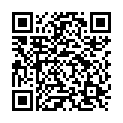|
|
|
| Module code: MST406 |
|
2V (2 hours per week) |
|
2 |
| Semester: 4 |
| Mandatory course: yes |
Language of instruction:
German |
Assessment:
Written exam
[updated 04.08.2012]
|
MST406 Mechatronics and Sensor Technology, Bachelor, ASPO 01.10.2005
, semester 4, mandatory course
|
30 class hours (= 22.5 clock hours) over a 15-week period.
The total student study time is 60 hours (equivalent to 2 ECTS credits).
There are therefore 37.5 hours available for class preparation and follow-up work and exam preparation.
|
Recommended prerequisites (modules):
MST204 Electrical Engineering
[updated 04.08.2012]
|
Recommended knowledge:
Electricity and Magnetism, Mechanical Engineering, Thermodynamics
[updated 04.08.2012]
|
Recommended as prerequisite for:
MST502 Control Engineering I
MST601 Control Engineering II
[updated 12.08.2012]
|
Module coordinator:
Prof. Dr. Benedikt Faupel |
Lecturer: Prof. Dr. Benedikt Faupel
[updated 01.10.2005]
|
Learning outcomes:
Fundamentals of systems theory. After completing this course, students will understand and be able to use modern tools for assessing the behaviour of elementary transmission systems in the time and frequency domains. They will also be capable of using the different descriptive models and of applying Laplace transformations. Students will have a good command of the methods taught in this course and will be able to deploy them when processing sensor signals.
[updated 04.08.2012]
|
Module content:
1. Introduction to systems theory
Definitions, standards and nomenclature
LTI systems and nonlinear systems
Application of the Laplace transform and computational rules
Describing the time response of systems (weighting functions and step
response)
Block diagrams
2. Functional description of elementary transfer elements
Differential equations and transfer functions
Distribution of poles and zeros
Root locus plots and Bode plots
3. Static and dynamic behaviour of closed-loop control systems
4. System stability
Definition of stability
Algebraic stability criteria (Routh-Hurwitz criterion)
Cremer-Leonhard-Mikhailov
Simplified Nyquist criterion in root locus plots
Simplified Nyquist criterion in Bode plots
5. Sample technical applications
Creating block diagrams
Setting up and solving differential equations
Determining time response
6. Simulation of transmission systems
[updated 04.08.2012]
|
Teaching methods/Media:
Lectures, problem-solving
[updated 04.08.2012]
|
Recommended or required reading:
Lutz, H.; Wendt, W.: Taschenbuch der Regelungstechnik; 3. Auflage; Verlag Harri Deutsch, Frankfurt/Main 2000
Föllinger, O.: Regelungstechnik; 8. Auflage; Hüthig Verlag, Heidelberg 1994
Föllinger, O.: Laplace- und Fourier-Transformation. Hüthig Verlag, Heidelberg, 1986
Meyr, H.: Regelungstechnik und Systemtheorie. Wissenschaftsverlag Mainz, Aachen, 2000
Samal, E.; Becker, W.: Grundriss der praktischen Regelungstechnik. Oldenbourg Verlag, München 1996
L. Merz; H. Jaschek: Grundkurs der Regelungstechnik, Oldenbourg Verlag, München, 1985
H. Jaschek; W. Schwimm: Übungsaufgaben zum Grundkurs der Regelungstechnik, Oldenbourg Verlag, München 1993
Leonard, W.: Einführung in die Regelungstechnik; 6. Auflage. Vieweg Verlag, Braunschweig 1992
Walter, H.: Kompaktkurs Regelungstechnik. Vieweg Verlag, Braunschweig 2001
[updated 04.08.2012]
|


